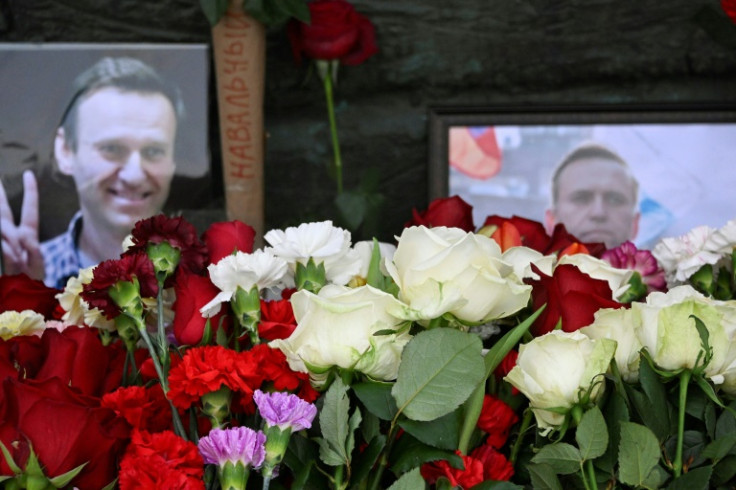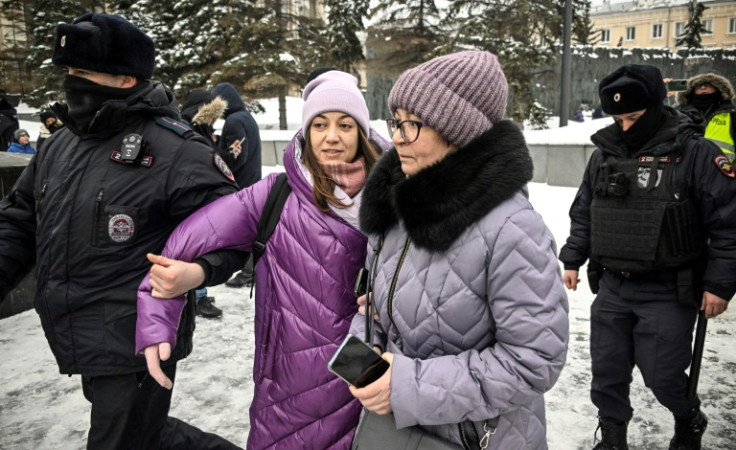In Moscow, Russians Mourn Navalny In Quiet Despair

On a snowy overcast Saturday in Moscow, a steady stream of mourners quietly laid flowers at makeshift memorials to opposition leader Alexei Navalny, who died in prison aged 47.
The Kremlin critic, who spent over three years behind bars, was seen by many Russians as their best hope for change after years of spiralling oppression under President Vladimir Putin.
One memorial, crafted around a monument to victims of Soviet-era repression known as the "Wall of Grief", began accumulating hundreds of flowers, candles and notes early in the day.
Some visited with their families and children. Others wept.
"Alexei Navalny's death is the worst thing that could happen to Russia," said one note, nestled in between flowers and photos of the late politician.
"We will not forget, we will not forgive," read another.
One sheet of paper addressed to Putin in capital letters carried the words: "Who's next?"
"Navalny gave us hope that injustice could be defeated," said Alexander, a 40-year-old driver.
"Thanks to him, I believed that one day we could build a wonderful Russia of the future."
The Sota independent news outlet said police had detained more than 15 people at the tribute.
The monument, an imposing bronze sculpture opened by Putin in 2017, features large faceless human figures and the word "Remember" etched in 22 languages.
It is located on a street named after the late Andrei Sakharov, a Soviet physicist and Nobel Peace Prize laureate known internationally for his human rights activism.
The memorials in Moscow, however silent and dignified, represent a major act of defiance in a country where all forms of political opposition have been banned.
AFP reporters saw four people being detained and dozens of police surrounding the area, not allowing people to linger.
Some took to laying flowers in the snow on a nearby pavement.
A separate pop-up memorial set up in the capital's Lubyanka Square late Friday was quickly dismantled overnight by a group of people in plain clothes.
One woman who attended that tribute said she went to share "silent solidarity".
"I'm not a Navalny supporter. But I wanted to show my respect for this political prisoner. And to be that evening with people who share my position," said Elena, a 45-year-old doctor.
"And I didn't feel sadness, but hatred towards those who killed him," she said.
Western leaders have said Putin should be held responsible for the death of Navalny.
The Kremlin accused the West on Friday of making "hysterical" statements surrounding his death and stressed that an investigation into its circumstances was underway.
But this has proved little consolation to an opposition that has seen all its major leaders over the past 30 years exiled, imprisoned or silenced.


© Copyright AFP 2024. All rights reserved.





















